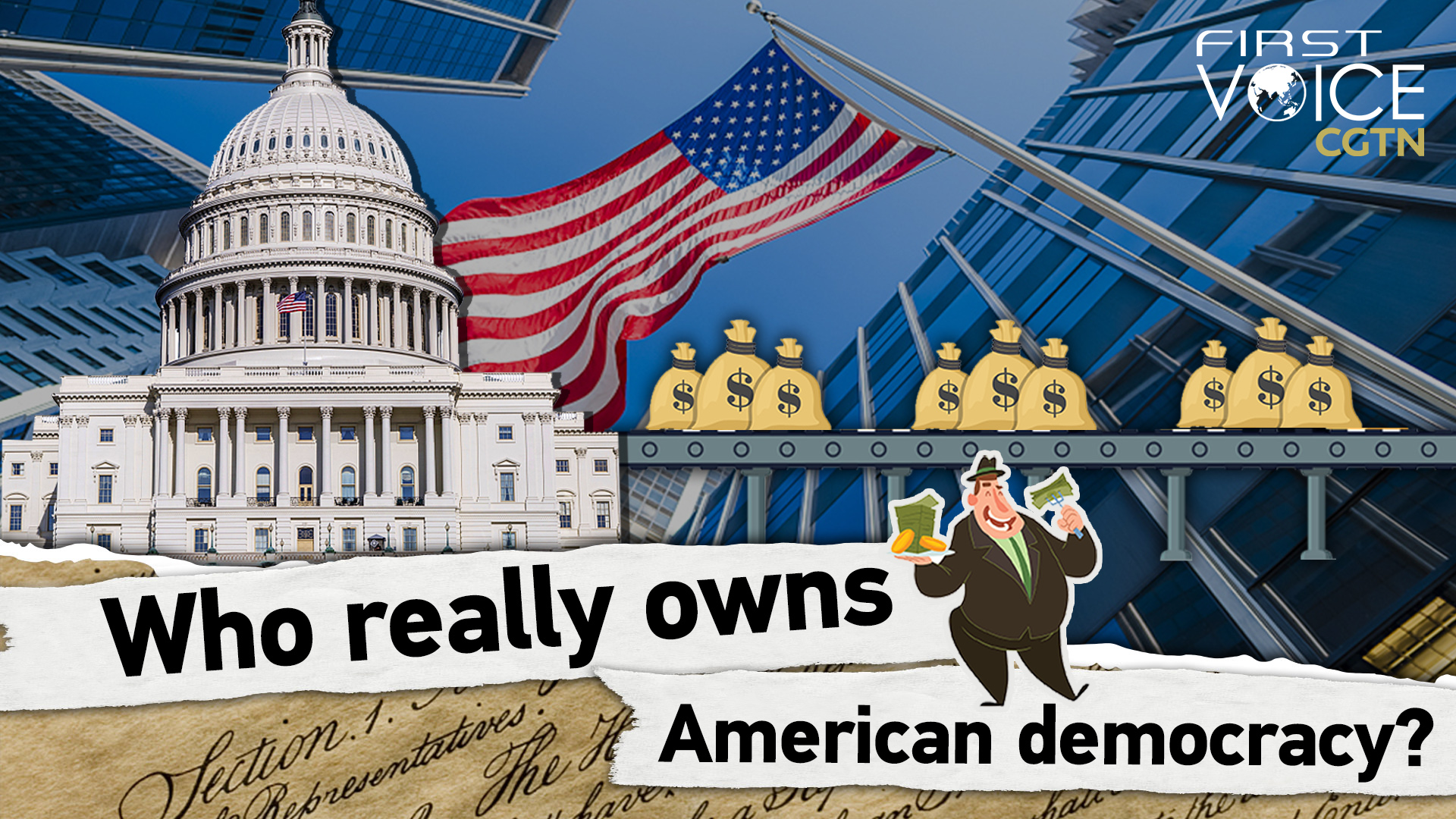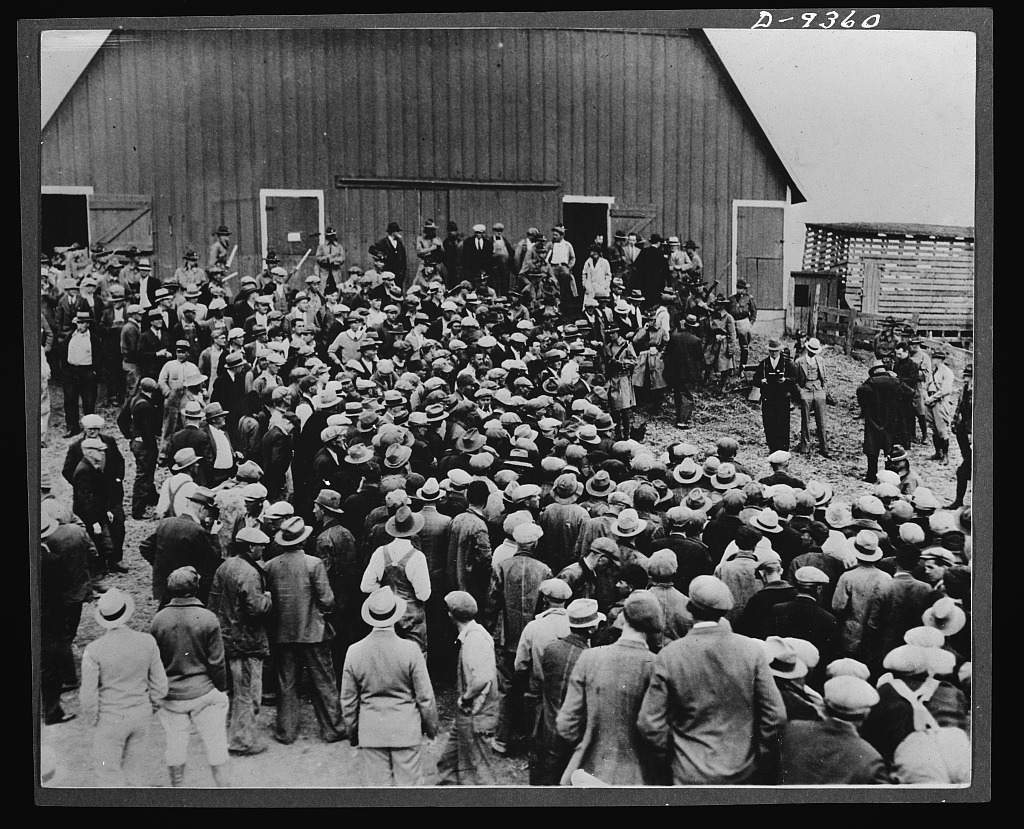
Editor's note: Wretched City upon a Hill is a 10-part series examining the clash between America's cherished beliefs about their democracy and the jarring truth about how the system fails in practice. The second essay is about the power of the ballot.
In 1933, in order to help America's struggling farmers, President Franklin D. Roosevelt signed the Agricultural Adjustment Act into law, effectively giving the secretary of agriculture the power to make policy. The secretary of agriculture then issued a series of quotas that limited the amount of produce that could be shipped each week.
The goal was to maintain a balance between supply and demand in the market. However, the quotas had a result voters never dreamed of. In the orange-producing states of California and Arizona, many fresh oranges were used as cattle-feed instead of being consumed by people.
Why? Under the quota system, in order to boost the price of fresh oranges, oranges were mostly processed into other products, fed to livestock, and even dumped. However, profits from increased fresh orange prices did not turn into long-term profits for orange farmers because their short-term gains were offset by the waste of oranges. Consumers were the ultimate losers, because they spent more money but had a harder time getting good oranges. The real winner was the orange seller and processor Sunkist in California and Arizona.
Sunkist, known as the largest fresh produce shipper in the country and a giant in the international orange market, formed a large marketing alliance to control orange farmers and distributors and regulate internal production and sales plans through order management with the help of the quota system. Under the quota system, Sunkist gained a competitive edge in exclusivity and maximizing profits. Despite opposition, Sunkist managed to maintain the quota system for decades until it was finally changed in the 1990s.
How did Sunkist get an elected government to agree to a quota system that served the private interests of a few at the expense of the majority?
That is the question posed by David Schoenbrod, the American scholar who told this story. Schoenbrod pointed out that Sunkist, like other big corporations, used political donations and lobbyists to curry favor with policy makers in Congress and the White House. Through these maneuvers, Sunkist developed long-term good relationships with members of Congress.

American farmers protest against the Great Depression, Iowa, 1931. /CFP
American farmers protest against the Great Depression, Iowa, 1931. /CFP
Most politicians seek to avoid the bad optics of passing laws that would flagrantly help a corporation like Sunkist at the expense of small farmers and the public.
But under the New Deal, Congress delegated authority to the executive branch. After Congress gave the executive branch "blanket authorization," Congress could wash its hands of any responsibility for ripping off the public. Members of Congress only needed to keep taking money from Sunkist lobbyists to keep the status quo, blaming any unfair rules such as the quota system on the executive branch.
With this trick, politicians who accepted Sunkist's contributions could actively campaign for the company's interests and influence the executive branch behind the scenes through various channels to formulate policies.
This means that policy was outsourced by Congress to the faceless bureaucrats in the executive branch. In this way, interests groups, with money and connections with the bureaucrats, could easily influence regulatory decisions.
In contrast, the general public has been excluded from the policy-making process. Rules are therefore made to satisfy special interests. This happened not only with oranges but in almost all areas of government, eventually touching on every aspect of American life. It has not only undermined governance, but also led to structural polarization between rich and poor.
As the decades passed, Americans witnessed the privatization of American public policy. Issues once decided by Congress were increasingly made by the executive branch, often in partnership with the private sector.
As the privatization of public policy spread to all spheres of American society and economy, public undertakings were often handled by private enterprises contracted by the government. This created a situation in which lobbyists, individual politicians and the private sector benefit while the public suffers. The interests of most Americans are harmed, and this widens polarization.
In American society, it is no secret that private enterprise and the public sector work out deals together and benefit each other. This kind of exchange has been institutionalized and is protected by law. In the opinion of Schoenbrod, American politicians are irresponsible to the public, but become very responsible when it comes to reciprocating favors to donors. This has become an essential characteristic of American democracy.
The alliance between power and capital means that American democracy is actually an unbalanced system of representation. Checks and balances may work within the elite classes, but there is lack of balance between the elite and the public. This imbalance is, to a large extent, masked by majority participation in voting, and the bogus rhetoric of "equal opportunities."
What do ordinary Americans have other than a ballot to influence their government? They absolutely cannot compete with interest groups and lobbyists in the distribution of political and economic resources and channels of participation. The public is excluded from most of the political process, which takes place in restaurants and back rooms, away from public oversight.
However, the powerlessness of the American people in this political process does not mean they are powerless in the future development of their country. Nor will the imbalance between private capital and the general public hold forever. As inequality grows, perhaps the American people will finally come to the forefront, and the sovereignty of the people in the true sense of the word will be revisited and redefined at some point. The people are already starting to ask: Is there any legitimacy to the American system? Who really owns American democracy?
(If you want to contribute and have specific expertise, please contact us at opinions@cgtn.com. Follow @thouse_opinions on Twitter to discover the latest commentaries in the CGTN Opinion Section.)